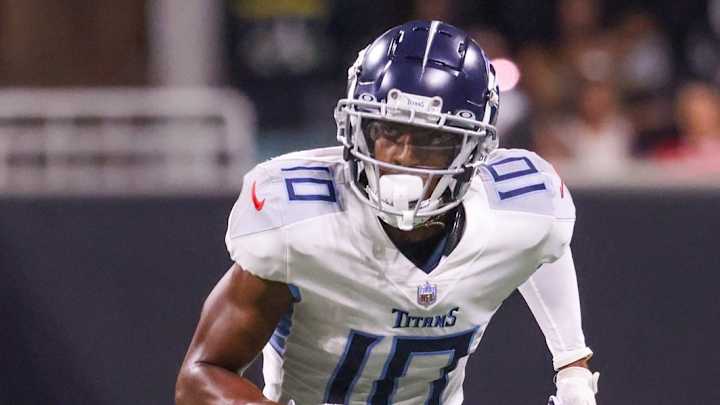Another Day, Another COVID List Addition

NASHVILLE – Dez Fitzpatrick was a healthy scratch on Sunday.
Now, he has been sidelined by an illness.
The rookie wide receiver became the second Tennessee Titans player in as many days to be placed on the Reserve-COVID 19 list. Jamal Carter, a defensive back on the practice squad, was placed on that list Monday.
What looks like an emerging issue with the coronavirus is consistent with what is taking place around the league. A record 37 players tested positive on Monday and more than two dozen more have done so on Tuesday, according to an ESPN report.
The Reserve-COVID 19 list is for players who have tested positive for the virus or have had a high-risk exposure to someone with the virus. The Titans have not revealed which the case for Fitzpatrick or Carter.
Fitzpatrick, a fourth-round draft pick out of Louisville, made his NFL debut on Nov. 14 against New Orleans and appeared in three consecutive games before he was scratched for the 20-0 victory over the Jacksonville Jaguars. He dropped down the depth chart after Julio Jones and Racey McMath were removed from injured reserve.
Fitzpatrick has caught five passes for 49 yards and a touchdown.
He spent the first nine weeks of the regular season on the practice squad.
“A guy that came in and maybe didn’t have the start he wanted to, but as the season has gone on, he started to make a ton of plays on a weekly basis on scout team,” quarterback Ryan Tannehill said recently. “Then you have seen his opportunities grow on Sunday.”
Unless he quickly clears the NFL’s COVID protocols, he won’t be seen on the field this Sunday when the Titans play at Pittsburgh.
